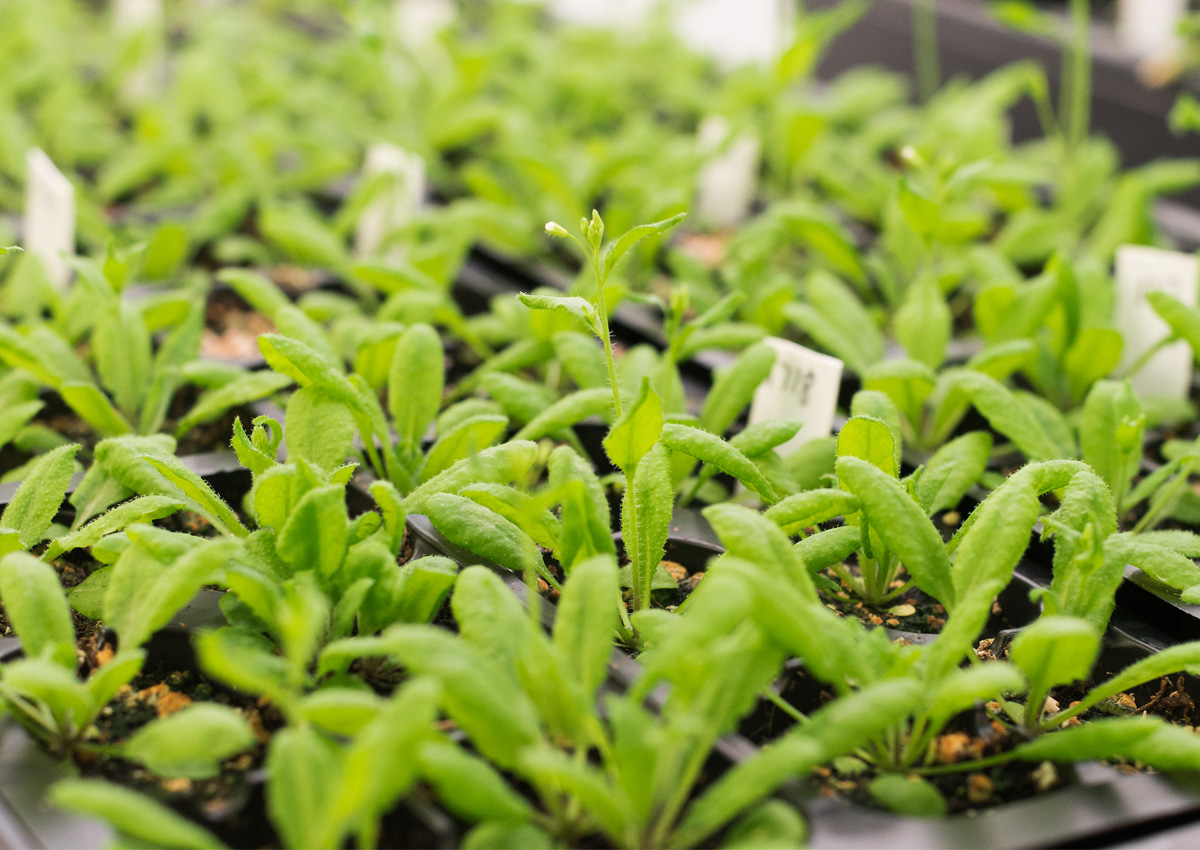
UC San Diego Scientists Develop First CRISPR-Cas9-based Gene Drive in Plants
July 1, 2021| |
Scientists at the University of California San Diego have developed the first CRISPR-Cas9-based gene drive in plants. The research, led by postdoctoral scholar Tao Zhang and graduate student Michael Mudgett, is published in the journal Nature Communications.
Gene drive technology has been developed in insects to help stop the spread of vector-borne diseases. Researchers in Professor Yunde Zhao's lab, along with colleagues at the Salk Institute for Biological Studies, demonstrated the successful design of a CRISPR-Cas9-based gene drive that cuts and copies genetic elements in Arabidopsis plants. The new research uses CRISPR-Cas9 editing to transmit specific, targeted traits from a single parent in subsequent generations. The technology could be used to develop plants that could defend themselves against diseases or fortify them against the impacts of climate change such as increased drought.
"This work defies the genetic constraints of sexual reproduction that an offspring inherits 50% of their genetic materials from each parent," said Zhao. He added that their work enables the inheritance of both copies of the desired genes from only a single parent and the findings can greatly reduce the generations needed for plant breeding.
Developing superior crops through traditional genetic inheritance can be expensive and time-consuming as genes are passed through multiple generations. Using the new active genetics technology based on CRISPR-Cas9, such genetic bias can be achieved much more quickly, the researchers say.
For more details, read the article in UC San Diego News Center.
| |
You might also like:
- What is Gene Drive?
- Survey Reflects US Public Views, Knowledge on Gene Drives
- Researchers Develop First Gene Drive Targeting World's Invasive Crop Pest
Biotech Updates is a weekly newsletter of ISAAA, a not-for-profit organization. It is distributed for free to over 22,000 subscribers worldwide to inform them about the key developments in biosciences, especially in biotechnology. Your support will help us in our mission to feed the world with knowledge. You can help by donating as little as $10.
-
See more articles:
-
News from Around the World
- Experts Explain How Gene Drives Control Invasive Species
- Philippine Media Use Less Fear Appeal as More Farmers Adopt Biotech Maize
- Can Gene Drive Eliminate Vector-borne Diseases?
- PennState Scientists Identify Sorghum Genes for Resistance to Anthracnose Leaf Blight
- EU Report Confirms Glyphosate Doesn't Cause Cancer
- Rutgers Study Sheds Light on Evolution of Photosynthesis
- Study Finds Barley Protein Could Help Boost Its Yield in High Temperatures
-
Plant
- UK's First CRISPR Field Trials Show Potential of Gene Editing
- Customizable Molecular Scissors for Tailoring Plant Genomes
- UC San Diego Scientists Develop First CRISPR-Cas9-based Gene Drive in Plants
- APEC Members Discuss Genome Editing Technology and Policy Strategies
- Simultaneous Editing of Susceptibility Genes in Rice Leads to Disease Resistance
-
Read the latest: - Biotech Updates (April 24, 2024)
- Gene Editing Supplement (April 24, 2024)
- Gene Drive Supplement (February 22, 2023)
-
Subscribe to BU: - Share
- Tweet

